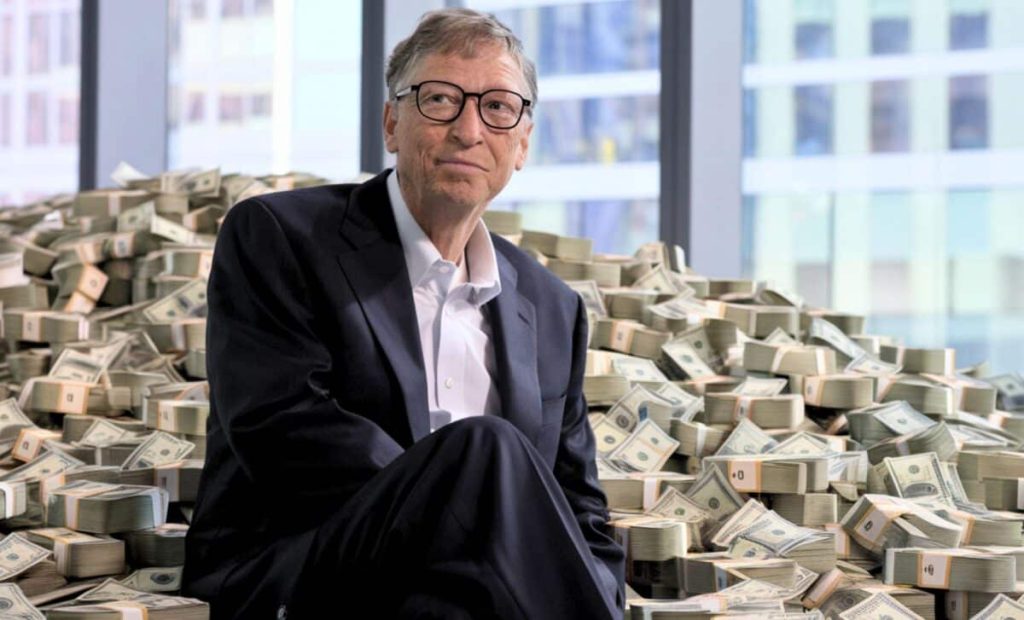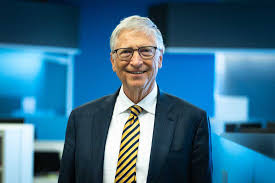In an astonishing development, it has been revealed that the U.S. Agency for International Development (USAID) has secretly directed an enormous sum of money toward Bill Gates and the World Health Organization (WHO). This discovery raises more questions about transparency and accountability in global aid distribution.

The shocking figures have caught many by surprise:
- $4 Billion to Bill Gates: The Bill & Melinda Gates Foundation has long been a player in global health initiatives, but new reports suggest that USAID has funneled an alarming $4 billion to the foundation.
- $880 Million to the WHO: USAID has also funneled $880 million to the WHO. This, coupled with previous financial reports, raises concerns about the organization’s financial ties to powerful global players.
Let’s dive into the details and explore what these revelations mean.
The Financial Ties Between USAID, Bill Gates, and the WHO
USAID, a key U.S. government agency focused on delivering foreign aid, has long been a major source of financial support for various international organizations. What has now come to light, however, is the sheer scale of the funds being funneled to entities such as the Bill & Melinda Gates Foundation and the WHO.

Bill Gates and His Foundation: Bill Gates, the co-founder of Microsoft, has become a well-known philanthropist through his foundation. The Bill & Melinda Gates Foundation has received substantial donations over the years to support public health projects, particularly in the areas of vaccines, malaria prevention, and healthcare infrastructure in developing nations. However, new information reveals that USAID has contributed $4 billion to Gates’ foundation. This sum significantly increases the influence of one individual in the global health sphere, a concern that many critics have raised over the years.
WHO and Its Global Health Mandate: The WHO, an organization established to address global health challenges, has received $880 million from USAID. This is not the first time the WHO has received significant financial support from the United States, but the total sums involved are unprecedented. The WHO’s work has been critical in managing health crises, such as the Ebola outbreak and the COVID-19 pandemic. Still, the heavy financial backing from the U.S. government raises concerns about the influence of the U.S. in shaping global health priorities.
Why is This Financial Relationship Controversial?
The large amounts of money being funneled to both the Gates Foundation and the WHO raise several critical questions:
Who Controls the Funds? The involvement of major global players like the Gates Foundation in global health is not new, but the scale of financial contributions from USAID is unprecedented. One of the primary concerns is the extent to which these donations give Bill Gates—and by extension, his foundation—control over global health priorities. Bill Gates, with his vast resources and influence, already plays a major role in shaping health policy globally. This significant financial backing further strengthens his position.
What is the Transparency Around These Transactions? These donations, particularly the $4 billion to the Gates Foundation, have not been fully disclosed to the public. Critics argue that there is a lack of transparency when it comes to how funds are distributed and used. The general public has little insight into how these donations are spent, what projects they support, and whether they are being used effectively to meet health needs. This raises concerns about accountability and whether the funds are reaching the people who need them most.
What Are the Long-Term Implications for Global Health? Some critics have voiced concerns about the concentration of power in the hands of a few individuals or organizations. Bill Gates’ foundation, with its substantial funding from USAID, plays an increasingly central role in determining global health priorities. The question is whether this concentration of power is beneficial for the global health community or whether it risks sidelining the voices of local organizations, governments, and communities that should be leading the charge in addressing their own health challenges.
The Role of USAID in Global Health Funding
USAID has long been a critical player in the distribution of foreign aid, especially in the context of global health. For decades, the agency has directed billions of dollars to international health projects. From fighting HIV/AIDS to supporting vaccination programs, USAID has played a pivotal role in global health interventions.
Why the Focus on Gates and WHO? The question arises: why are these two organizations—Bill Gates’ foundation and the WHO—receiving such substantial financial support? Is there a strategic reason for favoring these entities over others? It’s clear that both Gates and the WHO have significant global reach. Gates’ foundation, through its investment in health and development initiatives, has become a key player in global health policy. The WHO, as the central international health body, has the mandate to lead and coordinate global health responses. However, the overwhelming financial support from USAID to these organizations could be seen as an attempt to exert influence over the direction of international health efforts, leading some to question the motivations behind such large donations.
USAID’s Growing Influence in Health: Another issue that has surfaced is the increasing role of USAID in shaping global health policies. USAID’s support for organizations like the Gates Foundation and the WHO positions the U.S. as an influential player in determining the priorities of these organizations. While this may benefit global health in certain areas, it also risks the politicization of health issues, with decisions potentially being influenced by U.S. interests rather than purely humanitarian goals.
What This Means for the Future of Global Health Funding
These recent revelations about USAID’s financial contributions raise significant questions for the future of global health funding. The global health community must grapple with the implications of such large-scale financial support being directed toward a select few organizations.
The Need for Increased Accountability: As public scrutiny around global health funding grows, there is an urgent need for more transparency. The public deserves to know how funds are being spent and whether they are truly addressing the most pressing health needs. This means that foundations like the Gates Foundation and organizations like the WHO must be held to higher standards of accountability.
The Rise of Alternative Funding Models: With such vast sums of money being funneled into a few organizations, there is a growing call for more diversified funding models. What if more grassroots organizations, local governments, or smaller foundations could access this kind of funding? The future of global health could be shaped by more inclusive financial models that allow for a broader range of voices and solutions.
A Turning Point for Global Health Funding?
The discovery that USAID has directed billions of dollars to Bill Gates and the WHO raises serious questions about the influence of powerful global figures and institutions on health policy. As global health funding becomes increasingly centralized, it is crucial to ensure that transparency, accountability, and inclusivity remain at the forefront of decision-making.
As citizens and global stakeholders, it’s time to ask: How can we ensure that health funding is distributed equitably? How can we hold powerful organizations accountable for their role in shaping global health outcomes? The answers to these questions will shape the future of international aid and health interventions for years to come.
Stay tuned for more updates on this developing story.

